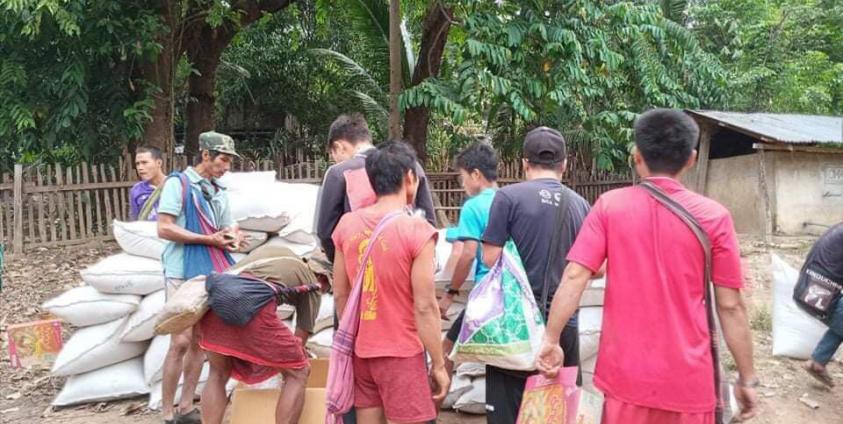The Back Pack Health Worker Team (BPHWT) has urged international and regional organizations to prioritize direct delivery of emergency and humanitarian aid to those in dire need who have fled from the raging conflict.
This appeal was made in a statement released on August 18, commemorating the 25th anniversary of the founding of the Back Pack Health Worker Team (BPHWT)." Saw Win Kyaw, Director of BPHWT told KIC.” Across the nation,numerous individuals have departed their homes due to the ongoing conflict, seeking refuge. Humanitarian support is crucial for these individuals. It appears beneficial to offer this assistance directly through aid organizations and cross-border relief groups. The regime is causing people to flee the war, so we are insisting the aid does not go through their channels.”
The BPHWT is asking for direct humanitarian aid to be given to relevant organizations through cross-border efforts. It is also highlighting the importance of international and local groups working together with ethnic health organizations to create a federal health system. Furthermore, there's a request to apply pressure on the regime in all possible ways to release imprisoned health workers without any conditions.
The BPHWT's statement highlights that, as a result of the civil disobedience activities triggered by the 2021 coup and the control by military dictators, both the ethnic health system established over three decades, and the progress achieved by the government health system in the past decade have disintegrated. This has led to the complete breakdown of the health system, making public healthcare services almost unreachable.
The BPHWT deploys over 500 health workers, in addition to more than 700 traditional midwives and over 300 village health workers, collectively totaling more than 1,500 healthcare providers, along with 114 backpack teams, are delivering medical assistance in remote regions.
This community-based health organization also urges the international community to take decisive action against the regime's intentional attacks on hospitals, clinics, and civilians. It earnestly calls for an end to conferring international recognition upon the regime, stopping those activities that inadvertently support it, and this includes Junta -approved control over humanitarian and developmental aid.
After the military coup, the BPHWT's statement indicates that they treated 105,584 patients, cared for more than 3,000 pregnant mothers, delivered 2,039 babies, and issued birth certificates to 1,879 children in the year 2022. Moreover, the BPHWT reported having trained nearly 2,000 first aid workers in regions of Myanmar afflicted by conflicts and natural disasters.
"Following the military coup, as you are aware, there are individuals who have engaged in the Civil Disobedience Movement (CDM), or due to various factors, there are those who are seeking refuge at the Thai border. Once they reach the forest, we offer initial medical training to ensure their preparedness for potential emergencies. We equip them with skills to administer essential care in case of urgent situations, benefiting themselves and those in their vicinity," explained Saw Win Kyaw, the director of BPHWT.
The BPHWT also stated that they are partnering with local communities to undertake essential healthcare activities for internally displaced persons (IDPs) in remote and conflict-affected regions, such as Karen, Karenni, Mon, Shan, Chin, Kachin, Rakhine, Pa-O, Taang (Palaung), Naga, and Kayan, in order to ensure the health rights of the population.
Established on August 18, 1998, along the Thai-Myanmar border, the Back Pack Health Worker Team (BPHWT) initiated its work by conducting essential healthcare activities. The organization began its efforts, with around 120 health workers organized into 32 small teams.
Likewise, the Back Pack Health Worker Team (BPHWT) mentioned that they, along with the Health Information System Working Group (HISWG), Health Convergence Core Group (HCCG), Ethnics Health System Strengthening Group (EHSSG), and other organizations, are collaborating to build healthcare services and the federal system.
As part of BPHWT's efforts, they released several reports. These include the Chronic Emergency report in 2006, the Diagnosis Critical report in 2010, the Long Road To Recovery report in 2015, and The Long Journey report in 2023. These reports provide insights into the health situation in Myanmar's southeastern region.








